Kate Sanders
Kate Sanders is Associate Professor and Chair of the Mathematics and Computer Science Department at Rhode Island College in Providence, Rhode Island. She received an A.B. in classics from Brown University, a J.D. from Harvard University, and a Ph.D. in computer science from Brown University, with a thesis on artificial intelligence and law. In recent years, her main research interest has been empirical computer-science education. She participated in the Bootstrapping Computer Science Education workshop in 2002-2003, and has published in SIGCSE, ITICSE, ICER, and CSEJ. She is the co-author (with A. van Dam) of "Object-Oriented Programming in Java: a graphical approach".
Brad Richards
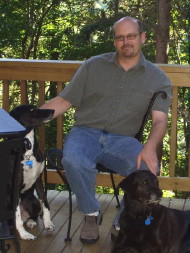 Brad Richards is an Associate
Professor of Computer Science at the University of Puget Sound.
He holds B.A. degrees in Physics and Computer
Science, an M.Sc. in CS from the University of
Victoria, and earned his Ph.D. in Computer Science
from the University of Wisconsin – Madison.
His main research interests involve emprical
computer-science education research. He participated
in the Bootstrapping Computer Science Education
workshop in 2002-2003, is a member of the Liberal
Arts Computer Science Consortium (LACS), and has
published in SIGCSE, ITICSE, and JERIC.
Brad Richards is an Associate
Professor of Computer Science at the University of Puget Sound.
He holds B.A. degrees in Physics and Computer
Science, an M.Sc. in CS from the University of
Victoria, and earned his Ph.D. in Computer Science
from the University of Wisconsin – Madison.
His main research interests involve emprical
computer-science education research. He participated
in the Bootstrapping Computer Science Education
workshop in 2002-2003, is a member of the Liberal
Arts Computer Science Consortium (LACS), and has
published in SIGCSE, ITICSE, and JERIC.
Jan Erik Mostr÷m
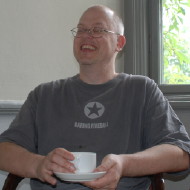 Jan Erik Mostr÷m works as a Lecturer
at the Department of
Computing Science at Umeň University, Sweden. He
got his M.Sc. in Computer Science from Luleň Technical University
and a Licentiate of Technology from Umeň
University.
Jan Erik Mostr÷m works as a Lecturer
at the Department of
Computing Science at Umeň University, Sweden. He
got his M.Sc. in Computer Science from Luleň Technical University
and a Licentiate of Technology from Umeň
University.
His main research interests are computer-science education research and empirical studies of programmers. He participated in the Scaffolding Computer Science Education workshop in 2003-2004, the Stepping Stones workshop in 2006-2007 and has published in SIGCSE, ITICSE, ICER, and CSEJ.
Vicki Almstrum
Stephen Edwards
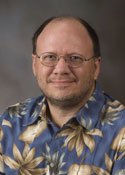 Stephen
Edwards is an associate professor at Virginia Tech. His
research interests are in software engineering, the
use of formal methods in programming languages,
automated testing, component-based approaches, and
computer science education. The largest CS education
project I am currently working on is Web-CAT: the Web-based Center
for Automated Testing. Web-CAT is an open-source
automated grading platform that is used by 20
different institutions. Web-CAT is customizable and
extensible, allowing it to support a wide variety of
programming languages and assessment strategies.
Web-CAT is most well-known as the system that
“grades students on how well they test their
own code,” with experimental evidence that it
offers greater learning benefits than more
traditional output-comparison grading.
Stephen
Edwards is an associate professor at Virginia Tech. His
research interests are in software engineering, the
use of formal methods in programming languages,
automated testing, component-based approaches, and
computer science education. The largest CS education
project I am currently working on is Web-CAT: the Web-based Center
for Automated Testing. Web-CAT is an open-source
automated grading platform that is used by 20
different institutions. Web-CAT is customizable and
extensible, allowing it to support a wide variety of
programming languages and assessment strategies.
Web-CAT is most well-known as the system that
“grades students on how well they test their
own code,” with experimental evidence that it
offers greater learning benefits than more
traditional output-comparison grading.
Sally Fincher
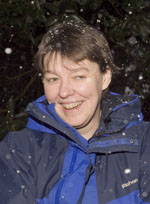 Sally is a Senior Lecturer in the
Computing
Laboratory at the University of Kent where she
leads the Computing Education Research group.
Together will Laurie Murphy she is Editor-in-Chief
of the Journal Computer Science
Education and is a member of the ACM
Education Council.
Sally is a Senior Lecturer in the
Computing
Laboratory at the University of Kent where she
leads the Computing Education Research group.
Together will Laurie Murphy she is Editor-in-Chief
of the Journal Computer Science
Education and is a member of the ACM
Education Council.
She has worked extensively in discipline-specific educational research (especially computing), most recently on two series of projects which bring new models of collaboration for teaching and learning to higher education: Bootstrapping Research in Computer Science Education (2002-2005) and the Disciplinary Commons (2005-date). She was awarded the 2003 IEEE Computer Society Computer Science and Engineering Undergraduate Teaching Award, is a 2005 UK National Teaching Fellow, and a Senior Fellow of the UK Higher Education Academy.
Kat Gunion
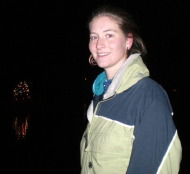 Kat Gunion is a Cognitive Systems
student at the University of British Columbia under
the supervision of Yvonne Coady. She is interested
in the psychological aspects of learning and
education, specifically in the domain of Computer
Science.
Kat Gunion is a Cognitive Systems
student at the University of British Columbia under
the supervision of Yvonne Coady. She is interested
in the psychological aspects of learning and
education, specifically in the domain of Computer
Science.
Kat has spent many years developing curriculum for elementary and secondary school students, but has just recently become involved in outreach for computer science. This summer she developed a three day workshop for students from a small Aboriginal community, Tsawout, on Vancouver Island.
Kat's present projects include: developing curriculum for a Saturday morning program which is targeted at grade 7 and 8 students, designing an IDE for beginner programmers as well as investigating research techniques in Computer Science Education. This year she participated in two workshops at OOPSLA--Process in oo Pedagogy -- Killer Examples and Programming languages in IDE's(PLIDE)--and she had a paper accepted at The Sixth International Conference on Creating, Connecting and Collaborating through Computing (C5 2008).
Mark Hall
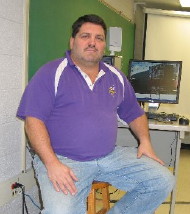 Mark S. Hall is an Assistant
Professor of Computer Science at the University of
Wisconsin - Marathon County where he is in his 6th
and final year on the tenure-track. He holds B.S.
degrees in Mathematics and Computer Science, and a
Masters of Science in Systems Management (MSSM) at
the University of Southern California. He joined the
academic world after 20+ years in software
development for software companies contracting for
the Department of Defense and commercial
applications. During this time, he lived in Japan
for 5 years and Germany for 8 years. His main
research interests involve computer-science
education and algorithm visualizations (JHave). He
is a member of the ACM and SIGCSE, AITP, and CSTA.
He has participated in an ITiCSE working group
(2006), and the working group paper was published in
the ACM "inRoads" journal. He has presented and
published at numerous regional CS Education
conferences (MICS, CCSC-Midwest).
Mark S. Hall is an Assistant
Professor of Computer Science at the University of
Wisconsin - Marathon County where he is in his 6th
and final year on the tenure-track. He holds B.S.
degrees in Mathematics and Computer Science, and a
Masters of Science in Systems Management (MSSM) at
the University of Southern California. He joined the
academic world after 20+ years in software
development for software companies contracting for
the Department of Defense and commercial
applications. During this time, he lived in Japan
for 5 years and Germany for 8 years. His main
research interests involve computer-science
education and algorithm visualizations (JHave). He
is a member of the ACM and SIGCSE, AITP, and CSTA.
He has participated in an ITiCSE working group
(2006), and the working group paper was published in
the ACM "inRoads" journal. He has presented and
published at numerous regional CS Education
conferences (MICS, CCSC-Midwest).
Brian Hanks
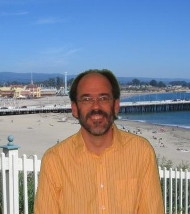 Brian Hanks is an assistant professor
at Fort Lewis
College. He received his B.A., Masters, and
Ph.D. degrees from the University of California,
Santa Cruz. His main research interests include
agile software development, computer-supported
cooperative work, and computer science education.
The latter is focused on issues surrounding novice
programming. He has participated in two ITiCSE
working groups, and has published in ITiCSE, ICER,
and JERIC.
Brian Hanks is an assistant professor
at Fort Lewis
College. He received his B.A., Masters, and
Ph.D. degrees from the University of California,
Santa Cruz. His main research interests include
agile software development, computer-supported
cooperative work, and computer science education.
The latter is focused on issues surrounding novice
programming. He has participated in two ITiCSE
working groups, and has published in ITiCSE, ICER,
and JERIC.
Steven Lonergan
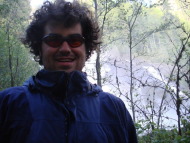 Steven Lonergan is a student at the
University of Victoria under the supervision of
Yvonne Coady and has been heavily involved in
Computer Science outreach with students of all ages.
This summer while at Squeakfest, Steven had the
opportunity to meet some of the developers working
on the One Laptop Per Child Project (OLPC), and from
that point on he has had the bug to develop tools to
help students. Currently he is developing a tool to
help the transition between graphical and textual
languages. This year Steven has participated in the
Educators Symposium as well as a Workshop on Process
in Object Oriented Pedagogy - Killer Examples at
OOPSLA 2007. Steven has had publications at the
Western Canadian Conference on Computer Education
(WCCCE'07) and the Conference on Creating,
Connecting, and Collaborating through Computing
(C5'08). All of these are focused on Computer
Science education and the ability to bridge the gap
between visual and graphical programming
languages.
Steven Lonergan is a student at the
University of Victoria under the supervision of
Yvonne Coady and has been heavily involved in
Computer Science outreach with students of all ages.
This summer while at Squeakfest, Steven had the
opportunity to meet some of the developers working
on the One Laptop Per Child Project (OLPC), and from
that point on he has had the bug to develop tools to
help students. Currently he is developing a tool to
help the transition between graphical and textual
languages. This year Steven has participated in the
Educators Symposium as well as a Workshop on Process
in Object Oriented Pedagogy - Killer Examples at
OOPSLA 2007. Steven has had publications at the
Western Canadian Conference on Computer Education
(WCCCE'07) and the Conference on Creating,
Connecting, and Collaborating through Computing
(C5'08). All of these are focused on Computer
Science education and the ability to bridge the gap
between visual and graphical programming
languages.
Robert McCartney
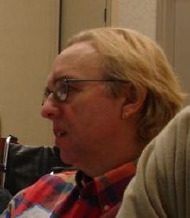 Robert McCartney is an Associate
Professor of Computer Science and Engineering at the
University of Connecticut. He earned B.S. and M.S.
degrees in Natural Resources at the University of
Michigan, worked as a statistician at the
Smithsonian Institution, and earned Sc.M. and Ph.D.
degrees in Computer Science from Brown University.
His main research interests involve empirical
computer science education research, most recently
work on threshold concepts and student
preconceptions about computing. His other research
interests include diagrammatic reasoning and
underwater robotics. He is currently co-editor in
chief of ACM JERIC, and was on the editorial board
of Computer Science Education from 1998-2006.
Robert McCartney is an Associate
Professor of Computer Science and Engineering at the
University of Connecticut. He earned B.S. and M.S.
degrees in Natural Resources at the University of
Michigan, worked as a statistician at the
Smithsonian Institution, and earned Sc.M. and Ph.D.
degrees in Computer Science from Brown University.
His main research interests involve empirical
computer science education research, most recently
work on threshold concepts and student
preconceptions about computing. His other research
interests include diagrammatic reasoning and
underwater robotics. He is currently co-editor in
chief of ACM JERIC, and was on the editorial board
of Computer Science Education from 1998-2006.
Briana Morrison
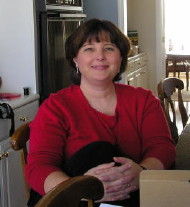 After earning a B.S. in Computer
Engineering from Tulane University, Briana Morrison
worked for IBM in Atlanta for 8 years. During
her career at IBM she was a software developer, team
lead for customer support, and developed and led
in-house training for developers and customers on
object-oriented programming and specific
products. While earning a M.S. in Computer
Science from Southern Tech, she was also a graduate
instructor and after graduating became an adjunct
instructor. She began her full-time position
at SPSU in January of 1996. She was the
faculty lead for a successful ABET accreditation
evaluation which resulted in initial accreditation
for the BS in Computer Science program. She is
currently Undergraduate Coordinator for Computer
Science and assessment evaluator within the
program. Her research interests include
Computer Science Education, gender issues in
computer science, and Data Structures.
After earning a B.S. in Computer
Engineering from Tulane University, Briana Morrison
worked for IBM in Atlanta for 8 years. During
her career at IBM she was a software developer, team
lead for customer support, and developed and led
in-house training for developers and customers on
object-oriented programming and specific
products. While earning a M.S. in Computer
Science from Southern Tech, she was also a graduate
instructor and after graduating became an adjunct
instructor. She began her full-time position
at SPSU in January of 1996. She was the
faculty lead for a successful ABET accreditation
evaluation which resulted in initial accreditation
for the BS in Computer Science program. She is
currently Undergraduate Coordinator for Computer
Science and assessment evaluator within the
program. Her research interests include
Computer Science Education, gender issues in
computer science, and Data Structures.
Jaime Spacco
Lynda Thomas
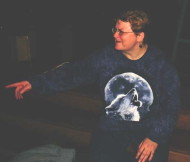 Lynda Thomas is a Senior Teaching
Fellow in the Computer Science Department at
Aberystwyth University, Wales. She has a BSc and MSc
in Mathematics from McMaster University, an MSc in
Computer Science from Southern Illinois University,
her PhD in Software Engineering from Aberystwyth,
and has taught in the US as well as the UK. She
participated in the Bootstrapping Computer Science
Education workshop in 2002 and 2003, and has
published in SIGCSE, ITICSE, and ICER. She is
(still) learning Welsh, sings croakily in a
community choir, and has just completed a living
willow garden bench.
Lynda Thomas is a Senior Teaching
Fellow in the Computer Science Department at
Aberystwyth University, Wales. She has a BSc and MSc
in Mathematics from McMaster University, an MSc in
Computer Science from Southern Illinois University,
her PhD in Software Engineering from Aberystwyth,
and has taught in the US as well as the UK. She
participated in the Bootstrapping Computer Science
Education workshop in 2002 and 2003, and has
published in SIGCSE, ITICSE, and ICER. She is
(still) learning Welsh, sings croakily in a
community choir, and has just completed a living
willow garden bench.